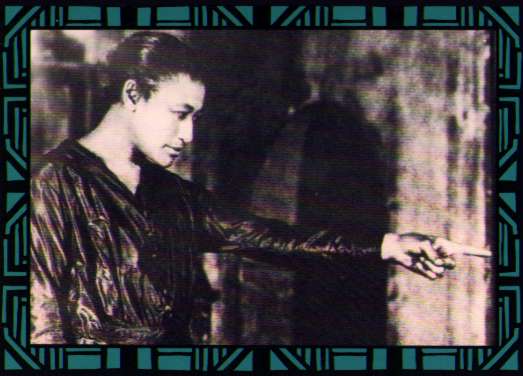

Rose McClendon was one of the most important and well-known black actresses of the 1920s and 1930s. Although she did not become a professional actor until she was in her thirties, she consistently won critical acclaim for her acting and influenced the careers of many aspiring black actors of the period.
McClendon made her professional debut in "Justice" (1919) and four years later appeared in "Roseanne" (1924) with Charles Gilpin (and later Paul Robeson). In 1926 she gained prominence for her acting in "Deep River," where she earned rave reviews, and in Paul Green's Pultizer Prize-winning folk tragedy, "In Abraham's Bosom" that starred Jules Bledsoe in the title role. In 1927 she received the Morning Telegraph Acting Award (along with Ethel Barrymore and Lynn Fontanne) for her portrayal of Serena in Dubose and Dorothy Heyward's "Porgy." Other plays McClendon appeared in include "House of Connelly," "Canary," "Brain Sweat," "Roll Sweet Chariot," and "Panic." Her last starring role was as Cora in Langston Hughes' "Mulatto" (1935) which ran for 375 performances on Broadway, the second-longest run by a black playwright at that time.
McClendon was also a director for the Negro (Harlem) Experimental Theatre located at the 135th Street Branch of the New York Public Library and, in addition, worked in a supervisory capacity with the Federal Theatre Project.
The Federal Negro Theatre was an off shoot of the Federal Theatre Project (FTP). The FTP had had been founded in 1935 as part of President Roosevelt's Works Projects Association (WPA). The FTP employed more than 12,000 actors, directors, and writers during its four year period. The money the FTP used was all provided by the Federal government, so there were no budget concerns for the people who took part in the various plays and shows. The two goals of the FTP were to put people back to work, and to provide free, low-cost entertainment to those who could not afford to see a show, or did not have that kind of entertainment available to them in their area. Of the 1,200 productions put on by the FTP, two thirds of them were free, or affordable for most people who often did not hold a steady job, and were trying to get back on their feet. Hallie Flanagan, a theater arts professor was in charge of the FTP, and wanted to form a specific kind of theater that was American in that it represented all the different races and cultures (unlike Europe).
Between 1935 and 1939, the FTP toured the country, stopping at virtually every big city including Detroit, Dallas, Cleveland, and Chicago. Nearly thirty million people witnessed these shows, producing two million dollars in revenue, more than any other WPA project made. Numerous plays were performed by the FTP, including classics, dance, dramas, and Shakespearean performances like Macbeth.
On June 30, 1939, the FTP was shut down by an act of congress. The budget from the FTP was simply distributed to other projects, and ironically did not save the government any money. The congressman who were invited as witnesses to testify to the House Committee on Appropriations were mostly opponents of the FTP, and thus were successful in making the point that the FTP was full of communism. After the shutting down of this memorable part of American history, many blacks who participated in the Negro Units could not find any jobs in the theater business for another twenty years or more because of the segregation, and if they did find an acting job, it was usually a stereotyped role.
[Back]
Copyrighted
2001, United States
of America
Anita Gonzalez & Ian Granick